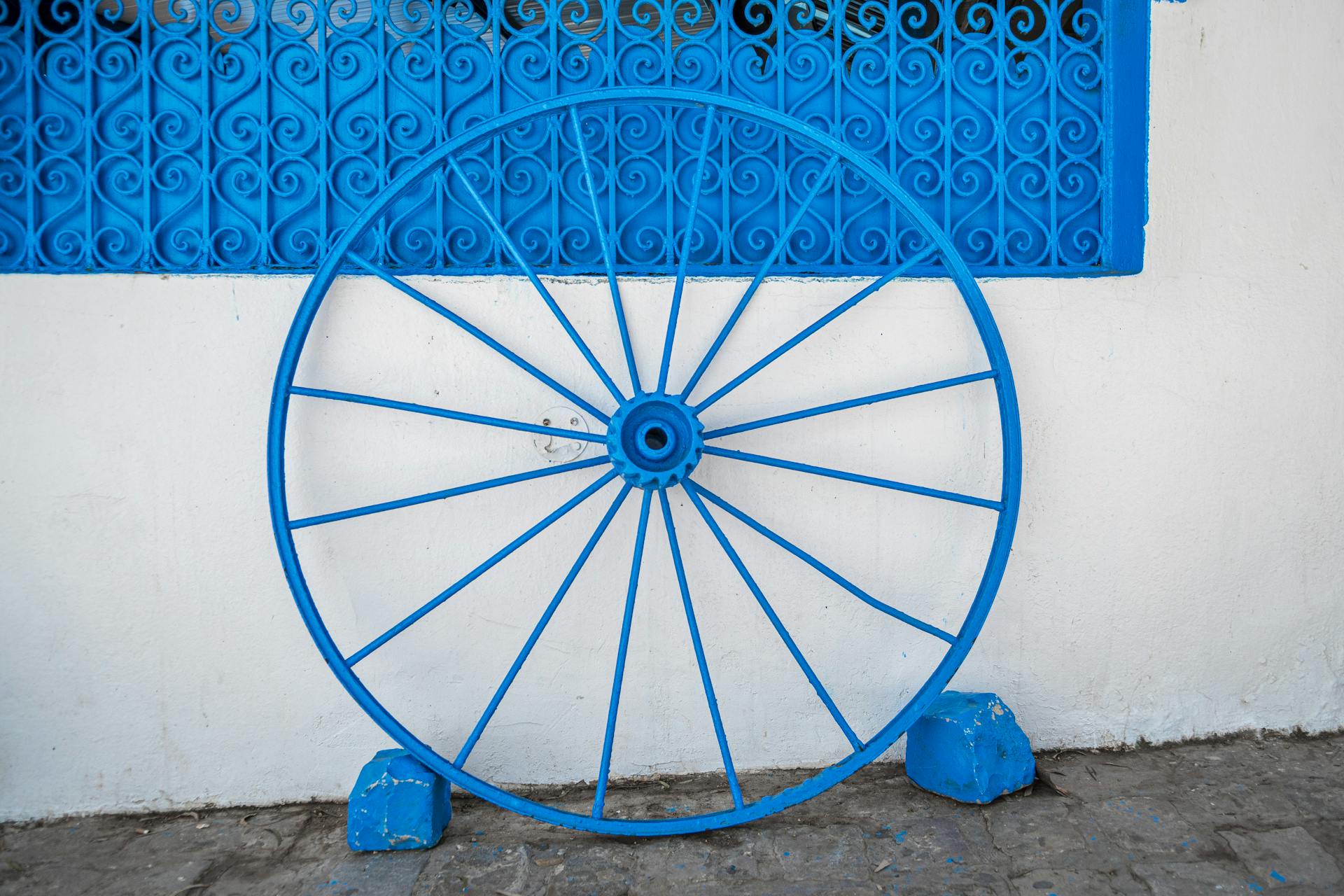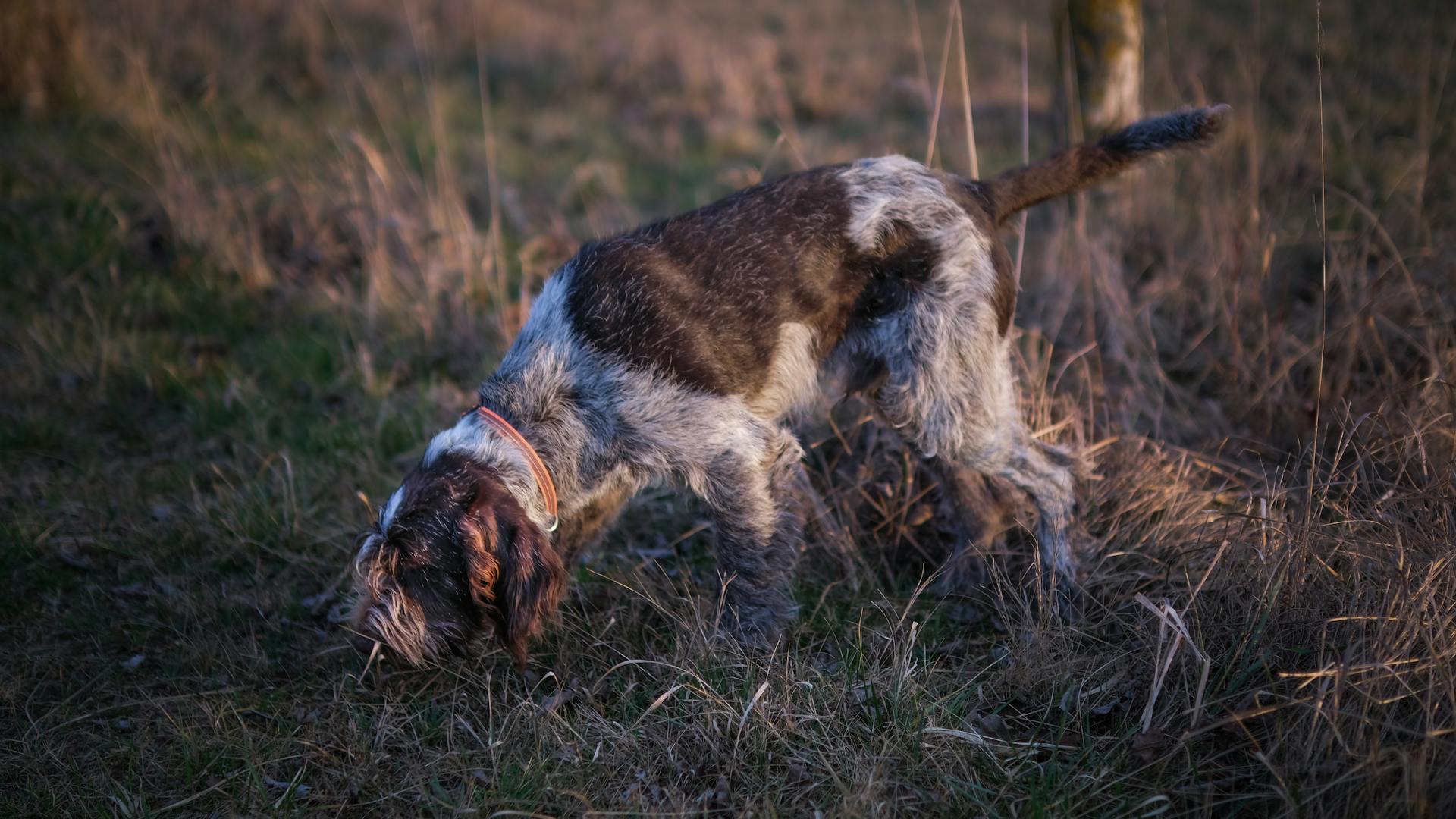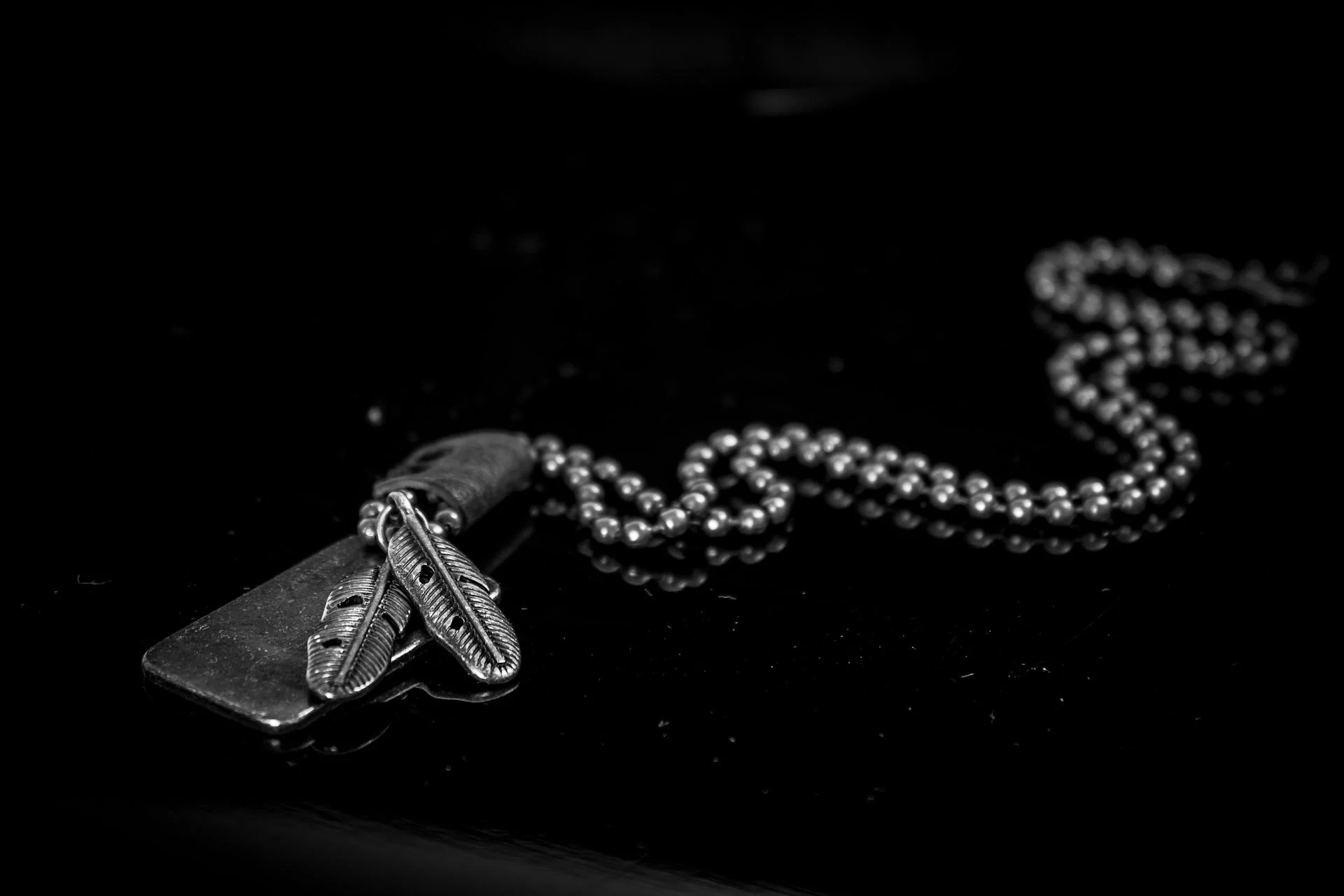
Ca de Bou puppies are a unique and fascinating breed. They are a rare breed of dog that originated in the island of Mallorca in Spain.
Their ancestors were likely the result of crossing the now-extinct Molossus with the local dogs. The Molossus was a large and powerful breed.
Ca de Bou puppies are known for their distinctive appearance, which includes a short, smooth coat and a broad, flat head. Their eyes are typically dark brown and almond-shaped.
They are an intelligent and active breed, requiring regular exercise and mental stimulation to prevent boredom and destructive behavior.
A different take: Greek Molossus Dog
Origin and History
The Ca de Bou breed has a rich and complex history that spans centuries. The first written mention of the breed was made by Ludwig Salvator Archduke in 1867.
The breed was originally used for blood sports such as bull-baiting and dog fighting, which were prevalent on the island of Majorca. In fact, the Ca de Bou was favoured by the locals for these activities due to its ferocity and bravery.
Broaden your view: Ca Rater Mallorquí
The breed's origins are not entirely clear, but it's believed to have developed during the period of Catalan influence over Majorca between 1270 and 1570 AD. Some historians suggest that it may have descended from mastiff-type dogs used on the island for controlling cattle.
By the 18th century, both bull-baiting and dog fighting were well-established on the island, and the Ca de Bou was renowned for its ferocity and bravery in these activities. Unfortunately, this dark history has left the breed with a bad reputation that it still struggles with today.
In 1928, the Ca de Bou was registered in the Spanish register, but the breed was likely extinct by the 1940s or 1950s. However, in the 1980s, a judge named Paco Ruiz Rodriquez began breeding the Ca de Bou again, crossing it with a bulldog to create a new generation of the breed.
Today, the Ca de Bou is recognized as a rare and unique breed, with a rich history and a loyal following. Despite its troubled past, the breed has evolved to become one of the most child-friendly breeds around, making it a great choice for families.
Here's a brief timeline of the Ca de Bou's history:
Characteristics
The Ca de Bou is a medium to large-sized dog breed, with adult males reaching a shoulder height of 55 to 58 cm.
Their muscular build is strong and harmonious, with a broad chest, strikingly strong neck, and distinctive head.
The breed has a short and smooth coat, coming in various shades of coat color, including light brown to golden brown, black, and brindle.
Some dogs also have white markings, often found on the chest, forehead, or lower legs.
The Ca de Bou is a very intelligent breed that requires plenty of exercise and movement to stay happy and healthy.
They are considered to be very amiable and friendly, forming a close and intense bond with their owner.
Their loyalty is one of their best-known characteristics, and they will do anything to protect their owners from potential danger.
The Ca de Bou is courageous, self-confident, and has a high tolerance threshold, making them a great watchdog.
They tend to be suspicious of strangers and always keep a close eye on their surroundings.
Their many positive characteristics make them an ideal family dog, suitable for families with children.
Broaden your view: How Strong Are German Shepherds
Appearance and Grooming
Ca de Bou puppies are a joy to behold, with their powerful build and impressive features. They are a medium-sized breed, with females measuring between 52 and 55cm and males standing from 55 to 58cm at the withers.
Their heads are noticeably larger in males, but both sexes have enormous, almost square skulls that can have a circumference of up to 60cm. Their powerful jaws are slightly undershot, but never by more than 1cm.
Their large, oval eyes are dark, while their ears are relatively small and described as 'rose ears'. Their broad, deep chest reaches their elbows and is supported by strong and muscular limbs.
Here are the accepted coat colors for Ca de Bou puppies:
- Brindle
- Fawn
- Black
Regular brushing is a must to keep their short coat looking good, and it's also essential to get them accustomed to tasks like cleaning their teeth and looking inside their ears from an early age.
Appearance
The Ca de Bou is a powerfully built breed, with a medium size that's hard to ignore. Females measure between 52 and 55cm, while males stand from 55 to 58cm at the withers.
Their enormous skulls are almost square, with a circumference of up to 60cm. Males have noticeably larger heads than females.
Both sexes have powerful jaws that are slightly undershot, but never by more than 1cm. Their large, oval eyes are dark, while their ears are relatively small and described as 'rose ears'.
Their broad, deep chest should reach their elbows and is supported by strong and muscular limbs. Their tail tapers to a tip, though is broad at the base.
Their skin is thick, and their fur is short and dense. While the brindle coat colour is preferred, fawn and black variants are accepted.
Grooming
Grooming is a must for Ca de Bou owners. Brushing their short coat should be a routine chore to keep them looking good.
Regular brushing will help remove loose hair and keep their coat in good condition. It's also a great way to bond with your dog and get them used to being handled.
Ca de Bou coat colors include brindle, fawn, and black. These beautiful colors can vary in intensity, but regular grooming will help keep them looking their best.
Trimming their nails is a good idea if they don't wear them down naturally. Regular ear checks are also important to catch any signs of infection.
- Brindle
- Fawn
- Black
Bathing your Ca de Bou a few times a year will keep them clean and smelling fresh.
Featured Images: pexels.com


